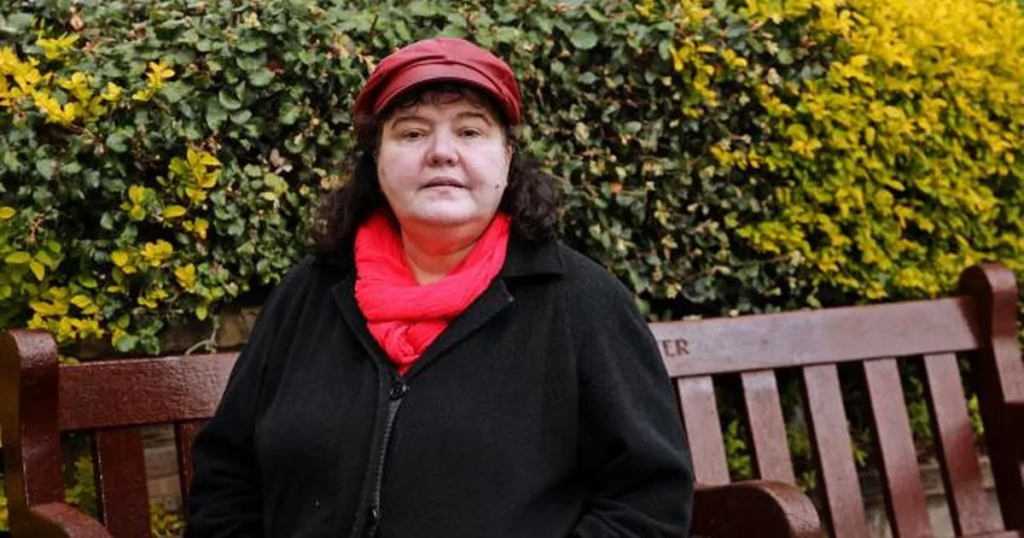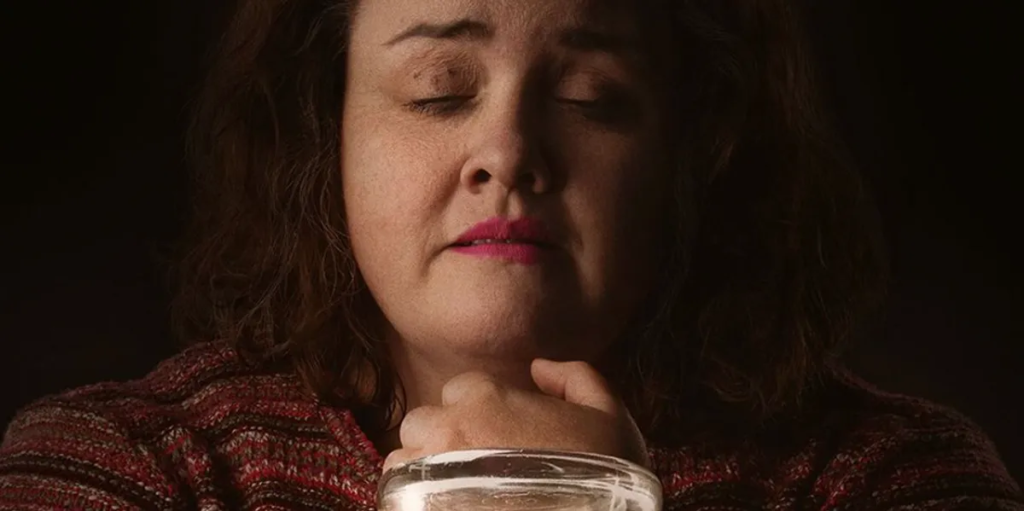Martha scott, The dark Netflix comedy series “Baby Reindeer” sparked a real-life legal battle the moment it premiered. The show, written by and starring comedian Richard Gadd, centers around a comedian named Donny Dunn who is relentlessly harassed and stalked by a woman named Martha Scott. While the show is billed as a “true story,” a woman named Fiona Harvey claims she is the real-life Martha being portrayed in a negative light, and she’s not taking it lying down.

From Comedy to Courtroom: The “Baby Reindeer” Controversy
The seven-part series delves into Donny’s life as he becomes increasingly paranoid and fearful due to Martha’s obsessive behavior. The show depicts her sending him thousands of emails and messages, showing up uninvited at his events, and generally making his life a nightmare.
However, Fiona Harvey, a 58-year-old lawyer, maintains this portrayal is a gross exaggeration and fiction. She readily admits she knew Richard Gadd but denies ever stalking or harassing him. Following the show’s release, internet sleuths quickly identified Harvey as the potential inspiration for the character, prompting her to defend herself publicly. This ultimately led to legal action against both Gadd and Netflix.
Is “Baby Reindeer” a true story? While the show claims to be based on real events, the extent of its accuracy is highly disputed. Harvey’s lawyer, Richard Roth, demanded the release of the alleged evidence, including the thousands of emails and messages mentioned in the series. Netflix has yet to provide this evidence.
Who is the real Martha Scott? Fiona Harvey maintains she is the real-life inspiration for the character, but the show’s creators haven’t confirmed or denied this. Harvey has stated she only had casual interactions with Gadd and never exhibited the stalkerish behavior depicted.
What are the legal grounds for the lawsuit? Harvey’s lawsuit centers on defamation and emotional distress. She argues that the show portrays her in a false light, causing her significant emotional harm.
The “Baby Reindeer” situation raises important questions about the line between artistic license and defamation. Can a fictionalized portrayal based on a real person be considered defamation, especially if the real person’s name is changed?
Beyond “Baby Reindeer”: Defamation and the Public Eye
Defamation laws vary by country, but generally, it involves making a false statement about a person that damages their reputation. For public figures, the bar for defamation is higher. They must prove the statement was made with “actual malice” – meaning the speaker knew it was false or recklessly disregarded the truth.
However, Fiona Harvey is not a public figure. This means she doesn’t have to prove actual malice, just that the portrayal was false and caused her harm. Whether the court will find in her favor remains to be seen, but the case highlights the potential risks associated with fictionalizing real-life events, even if names are changed.
The Ripple Effect: Another Woman Comes Forward
The “Baby Reindeer” controversy took a surprising turn when another woman, Laura Wray, a lawyer and widow of a former British MP, came forward with her own story. Wray claims that the same “Martha Scott” also targeted her, sending her unwanted messages and making her feel threatened.
Wray’s story adds another layer of complexity to the situation. While it’s unclear if Wray will also pursue legal action, her experience suggests the show’s portrayal might be more fiction than reality.
The Future of “Baby Reindeer” and the Right to Privacy
The legal battle between Fiona Harvey and the creators of “Baby Reindeer” is still ongoing. The outcome could have a significant impact on the way fictionalized stories are presented, particularly when they touch on real-life events and people.
The case also raises questions about the right to privacy in the digital age. With the ease of spreading information online, it’s becoming increasingly difficult to control how one is portrayed.
Whether “Baby Reindeer” is ultimately deemed defamatory or not, the show has sparked a conversation about the importance of responsible storytelling and the potential consequences of blurring the lines between fact and fiction.
It remains to be seen if the series will be renewed for a second season, but one thing is certain: the legal battle surrounding “Baby Reindeer” is far from over.

FAQ’S
Who is Martha Scott in Baby Reindeer?
There isn’t actually a Martha Scott in the legal sense. The character in the show, played by Jessica Gunning, is fictional. However, the series claims to be inspired by a true story.
So, who is the real Martha?
The real person allegedly depicted is Fiona Harvey, a British lawyer. After the show’s release, Harvey came forward, claiming the portrayal significantly impacted her life.
What are the allegations against Netflix?
Harvey’s lawyer argues that “Baby Reindeer” falsely portrays her as a stalker. They claim the series exaggerates events and damages her reputation.
What evidence is there?
The crux of the lawsuit hinges on the portrayal being based on “a true story.” Harvey’s lawyer demands Netflix release emails, messages, and any proof of conviction to substantiate these claims.
Why is a baby reindeer involved?
The title “Baby Reindeer” remains unexplained. Speculation suggests it might be a nickname used by the fictionalized character in the show, but there’s no confirmation.
What does Netflix say about the lawsuit?
Netflix maintains “Baby Reindeer” is a fictionalized work and protected by artistic license. They haven’t commented on releasing evidence requested by Harvey’s lawyer.
Is there a similar case?
Another British lawyer, Laura Wray, came forward alleging similar harassment from the character inspired by Harvey. This suggests the show might have fictionalized elements based on a loose inspiration.
What are the potential outcomes of the lawsuit?
The lawsuit could hinge on the definition of “true story” and the level of creative license afforded to the show.
Harvey could win: If the court finds the portrayal is demonstrably false and caused harm, Harvey could receive compensation.
Netflix could win: If the court deems “Baby Reindeer” sufficiently fictionalized, Netflix might prevail.
Settlement: An out-of-court settlement is also a possibility.
What does this mean for freedom of expression?
The case raises questions about the line between artistic expression and defamation. It could impact how fictionalized portrayals based on real events are handled.
Is there anything else to consider?
The case highlights the potential consequences of portraying real people, even with fictionalized names, in a negative light. It also emphasizes the importance of fact-checking and responsible storytelling.
What are people saying online?
Discussions online are divided. Some support Harvey, while others defend artistic freedom. The case has sparked debates about portrayals in film and television.
What’s the latest update on the lawsuit?
As of June 2024, there haven’t been any major developments in the lawsuit. It’s likely in the pre-trial stages, with evidence being gathered and legal arguments being prepared.
What can we expect next?
The next steps could involve motions, hearings, and potentially a court date. The outcome will depend on the legal arguments presented and the evidence brought forward.
To read more, Click here